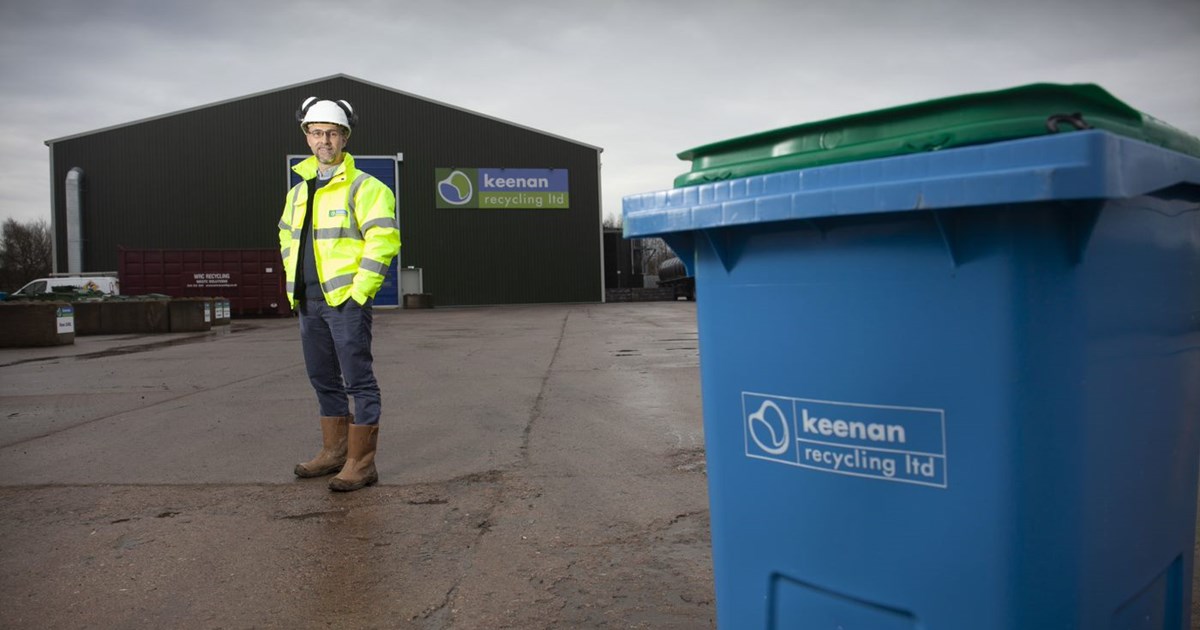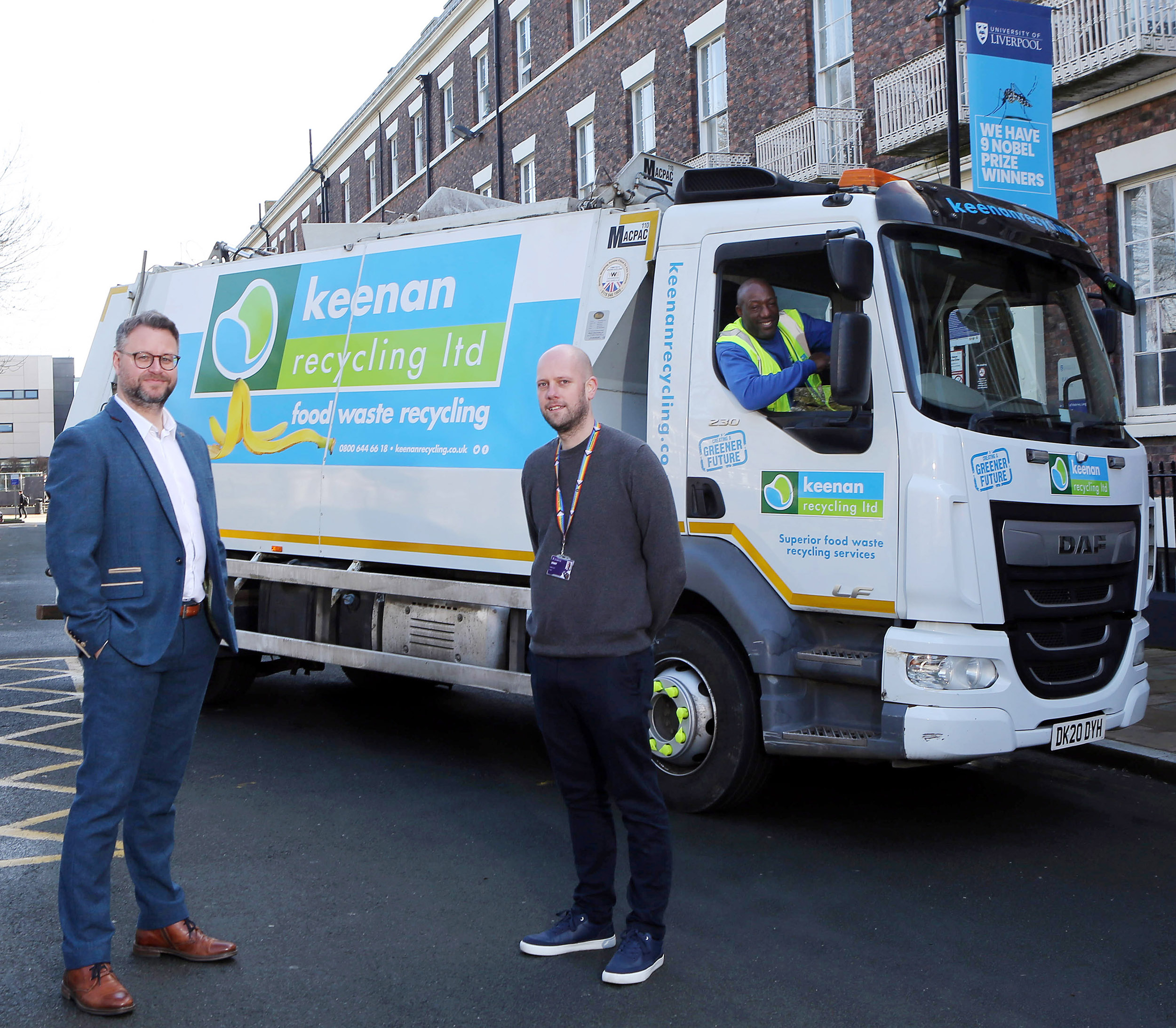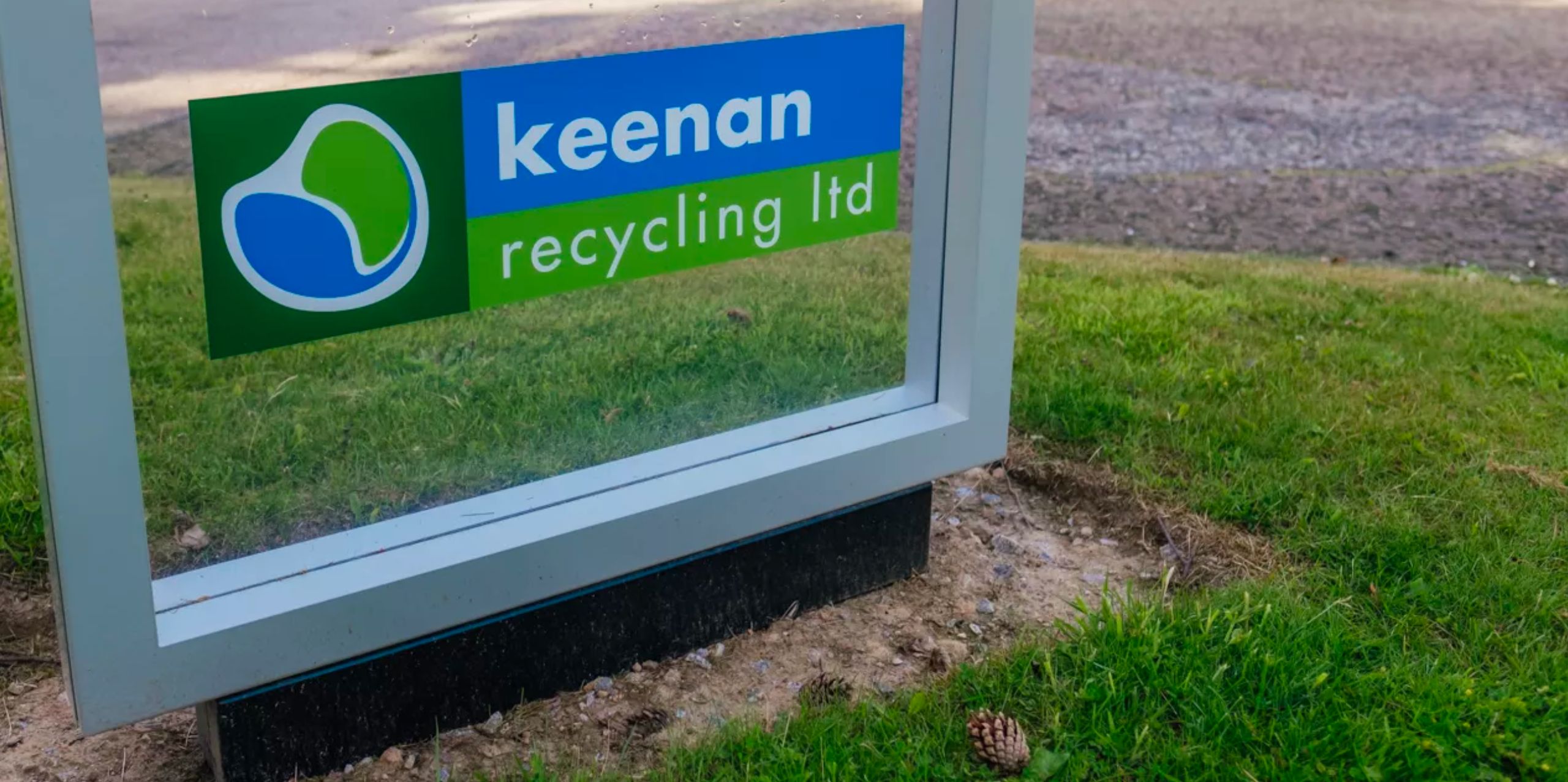IN RESPONSE TO THE UNPRECEDENTED GLOBAL CHALLENGES AS A RESULT OF THE COVID-19 PANDEMIC, TRILLIONS IN ECONOMIC STIMULI AND FINANCIAL RESOURCES AND SUPPORT HAVE BEEN MADE AVAILABLE ACROSS THE GLOBE.
The coronavirus and its repercussions have further exposed the failures of a linear “take-make-waste” use of the world’s resources, and highlighted the need for a more circular “reduce-redesign-reuse” approach. Now, world leaders are being entrusted to manage a recovery, with many seeing it as a rare opportunity to align with other global challenges, and to build back in a more resilient and low carbon way.
Aberdeen based, food waste collections company, Keenan Recycling, has been leading the charge for the UK’s shift to a circular economy since setting up in 2011.
Operations director, Gregor Keenan explains:
“Recycling food waste is such an easy way to make a positive impact to your carbon footprint. At present, a fifth of UK greenhouse gases are created by food waste going to landfill, making it one of the major contributors to global warming and an even worse threat to our environment than plastic waste.
Moreover, when food is wasted we also waste all the energy and resources that went into producing, processing, transporting and cooking it while losing the money spent on all these things – meaning that businesses are less efficient.
At Keenan our entire business is dedicated to reducing waste that ends up in landfill by recycling food and garden waste into biofuel and compost.”
The company’s efforts were rewarded, when at the end of 2019, they secured over half a million pounds from the Zero Waste Scotland’s Circular Economy Investment Fund.
Keenan used the funding to expand and improve its integrated approach to collecting and turning organic waste into green energy from its new site in Linwood which is due to open in the new year.
The site, which will open in January, will unpack and process the food waste, collected and delivered by Keenan’s fleet of disposal trucks as well as from other third party food waste collections. Based on a site near Glasgow, the waste will then be turned into liquidised fuel that will be shared with local anaerobic digester (AD) plants for conversion into green energy.
Using anaerobic digestors, this biogas can be extracted and used for electricity, gas to grid, heating or even as biomethane for transport. Furthermore, there is absolutely no waste, as the by-product left behind is removed and spread to agricultural land as an organic fertiliser. Mr Keenan said:
“By choosing to recycle food waste this way, it not only reduces the emissions into the ecosystem, but also lessens the need for further use of fossil fuels and becomes a significant contributor to the circular economy.”
With green energy now regarded as the second most important renewable source, ahead of wind and solar; and the use of biogas successfully reducing the greenhouse effect by 21 per cent this year, 2020 may have led the foundations of a greener future for the UK.
Helping to bolster a greener economy, Keenan has invested considerable time and money into the research and development of its integrated service, as well as driving ahead with its ambition to spread its recycling message to the whole of the UK. Earlier this year the company invested almost £4.5 million into its vehicle fleet to further grow market share in England. Acquiring 39 new vehicles, the new trucks were rolled out across operations in Gloucester, Hull, Leeds, Liverpool, Manchester, Newcastle and Salisbury. With additional depots planned for other English regions in 2021 including a site in London. Mr Keenan said:
“Scotland has already introduced legislation requiring all businesses that produce over 5kg of food waste per week to recycle it but this isn’t expected to come into force in England until 2023
However, with an increasing focus on green sustainability, forward-thinking businesses in England are already making better choices with their food waste. Our new fleet of collection trucks puts us in an ideal position to expand our services and capitalise on the opportunities as more and more business look to act more responsibly.”
Closer to home, Keenan has secured a multi-million pound contract to supply biofuel to sites in Aberdeen. The soon to be announced project has been hailed as a prime example of how the circular economy model can be integrated into major infrastructure projects.
News of this comes as Scotland’s decision-makers look to grow new ‘green’ jobs as part of the country’s economic recovery from the coronavirus pandemic, as well as this countdown to some of the most important climate negotiations of recent times at COP26 in Glasgow.
With net-zero high on the agenda for 2021, and fuelled by a green recovery, there’s never been a better time for companies involved in the circular economy to flourish.


